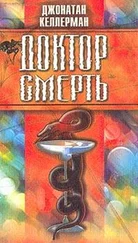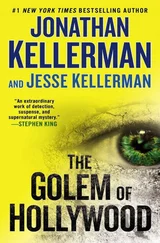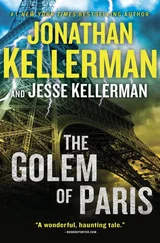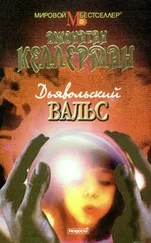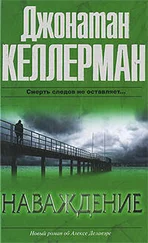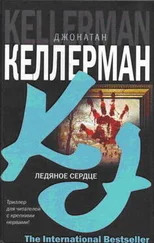“That’s very flattering, Del.”
“Any friend of Milo and all that.”
Milo, meanwhile, was opening the sealed cartons with a Swiss Army knife. He took out files in dozens and made neat little piles that covered the dining-room table.
“These are alphabetized, Alex. You can go through them and pull out the weird ones.”
He finished setting things up and he and Hardy got ready to go.
“Del and I will be talking to bad guys off the NCIC printout.”
“We’ve got our work cut out for us,” said Hardy. He cracked his knuckles and looked for a place to put out his cigarette, which was smoked down to the filter.
“Toss it in the sink.”
He left to do so.
When we were alone Milo said: “I really appreciate this, Alex. Don’t drive yourself – don’t try to get it all done today.”
“I’ll do as many as I can before the eyes start to blur.”
“Right. We’ll call you a couple of times today. To see if you’ve got anything we can pick up while we’re on the road.”
Hardy came back straightening his tie. He was dapper in a three-piece navy worsted suit, white shirt, blood-red tie, shiny black calfskin loafers. Next to him Milo looked more shopworn than ever in his sagging trousers and lifeless tweed sport coat.
“You ready, my man?” Hardy asked.
“Ready.”
“Onward.”
When they were gone I put a Linda Ronstadt record on the turntable. To the accompaniment of “Poor, Poor Pitiful Me,” I started to consult.
Eighty percent of the male patients in the files fell into two categories: affluent executive types referred by their internists due to a variety of stress-related symptoms – angina, impotence, abdominal pain, chronic headaches, insomnia, skin rashes of unknown origins – and depressed men of all ages. I reviewed these and put aside the remaining 20 percent for more detailed perusal.
I knew nothing about what kind of psychiatrist Morton Handler had been when I started, but after several hours of reviewing his charts I began to build an image of him – one that was far from saintly.
His therapy session notes were sketchy, careless, and so ambiguous as to be meaningless. It was impossible to know from reading them what he had done during those countless forty-five-minute hours. There was scant mention of treatment plans, prognoses, stress histories – anything that could be considered medically or psychologically relevant. This shoddiness was most evident in notes taken during the last five or six years of his life.
His financial records, on the other hand, were meticulous and detailed. His fees were high, his form letters to debtors strongly worded.
Though during the last few years he had done less talking and more prescribing, the rate at which he ordered medication wasn’t unusual. Unlike Towle, he didn’t appear to be a pusher. But he wasn’t much of a therapist, either.
What really bothered me was his tendency, again more common during later years, to inject snide comments into the notes. These, which he didn’t even bother to couch in jargon, were nothing more than sarcastic put-downs of his patients. “Likes to alternately whimper and simper” was the description of one older man with a mood disorder. “Unlikely to be capable of anything constructive” was his pronouncement on another. “Wants therapy as camouflage for a boring, meaningless life.” “A real washout.” And so on.
By late afternoon my psychological autopsy of Handler was complete. He was a burnout, one of the legions of worker ants who had grown to hate his chosen profession. He might have cared at one time – the early files were decent, if not inspired – but he hadn’t by the end. Nevertheless, he had kept it up, day after day, session after session, unwilling to give up the six figure income and the perquisites of prosperity.
I wondered how he had occupied his time as his patients poured out their inner turmoil. Did he daydream? Engage in fantasies (sexual? financial? sadistic?)? Plan the evening’s dinner menu? Do mental arithmetic? Count sheep? Compute how many manic depressives could dance on the head of a pin?
Whatever it had been, it hadn’t included really listening to the human beings who sat before him believing he cared.
It made me think of the old joke, the one about the two shrinks who meet on the elevator at the end of the day. One of them is young, a novice, and he is clearly bedraggled – tie askew, hair messed, fraught with fatigue. He turns and notices that the other, a seasoned veteran, is totally composed – tan, fit, every hair in place, a fresh carnation stuck jauntily in his lapel.
“Doctor,” beseeches the young one, “please tell me how you do it?”
“Do what, my son?”
“Sit, hour after hour, day after day, listening to people’s problems without letting it get to you.”
“Who listens?” replies the guru.
Funny. Unless you were shelling out ninety bucks a session to Morton Handler and getting a covert assessment as a simpering whimperer for your money.
Had one of the subjects of his nasty prose somehow discovered the sham and murdered him? It was difficult to imagine someone engaging in the kind of butchery that had been visited upon Handler and his girlfriend in order to avenge a peeve of that kind. But you never knew. Rage was a tricky thing; sometimes it lay dormant for years, only to be triggered by a seemingly trivial stimulus. People had been ripped apart over a nudged car bumper.
Still I found it hard to believe that the depressives and psychosomaticizers whose files I had reviewed were the stuff of which midnight skulkers were fashioned. What I really didn’t want to believe was that there were two thousand potential suspects to deal with.
It was close to five. I pulled a Coors out of the refrigerator, took it out to the balcony and lay down on a lounge, my feet propped up on the guardrail. I drank and watched the sun dip beneath the tops of the trees. Someone in the neighborhood was playing punk rock. Strangely enough it didn’t seem discordant.
At five-thirty Robin called, “Hi, hon. You want to come over? Key Largo’s on tonight.”
“Sure,” I said. “Should I pick up anything to eat?”
She thought a moment.
“How about chili dogs? And beer.”
“I’ve got a head start on the beer.” Three squashed Coors empties sat on the kitchen counter.
“Give me time to catch up, love. See you around seven.”
I hadn’t heard from Milo since one-thirty. He’d called in from Bellflower, just about to interrogate a guy who’d assaulted seven women with a screwdriver. Very little similarity to the Handler case but you had to work with what you had.
I phoned West L.A. Division and left the message for him that I’d be out for the evening.
Then I called Bonita Quinn’s number. I waited for five rings and when nobody answered, hung up.
Humphrey and Lauren were great, as usual. The chili dogs left us belching, but satisfied. We held each other and listened to Tal Farlow and Wcs Montgomery for a while. Then I picked up one of the guitars she had lying around the studio and played for her. She listened, eyes closed, a faint smile on her lips, then gently removed my hands from the instrument and pulled me to her.
I had planned to stay the night but at eleven I grew restless.
“Is anything the matter, Alex?”
“No.” Just my Zeigarnik tugging at me.
“It’s the case, isn’t it?”
I said nothing.
“I’m starting to worry about you, sweetie.” She put her head on my chest, a welcome burden. “You’ve been so edgy since Milo got you into all of this. I never knew you before, but from what you told me it sounds like the old days.”
“The old Alex wasn’t such a bad guy,” I reacted defensively.
Читать дальше


